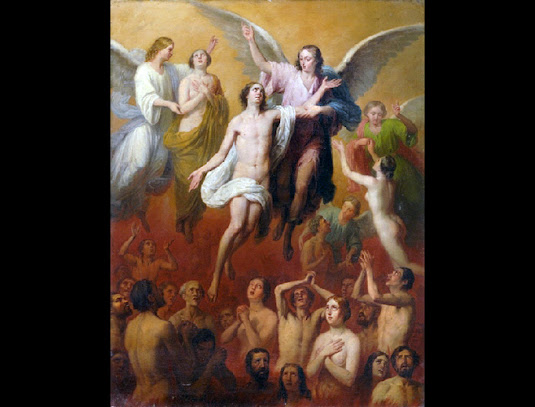The concept of altar fulfillment in relation to Jesus Christ in Christian theology involves understanding how various Old Testament practices and symbols (types or typologies) are seen as foreshadowing or prefiguring aspects of Jesus' life, ministry, and sacrifice. Here's how the altar, central to Old Testament worship, connects to Jesus:
Sacrifice and Atonement: Old Testament: The altar was where animals were sacrificed to atone for the sins of the people. Leviticus 17:11 states, "For the life of the flesh is in the blood, and I have given it for you on the altar to make atonement for your souls, for it is the blood that makes atonement by the life." Jesus: In Christian theology, Jesus is seen as the ultimate and final sacrifice. Hebrews 9:12-14 describes Jesus entering the holy places not with the blood of goats and calves but with His own blood, thus securing an eternal redemption. His crucifixion on the cross (which can be viewed symbolically as an altar) is seen as the fulfillment of all previous sacrificial systems, where His death provided atonement for humanity's sins once and for all.
The Passover Lamb: Old Testament: The Passover lamb was sacrificed on an altar, and its blood was used to mark the doorposts of the Israelites, sparing them from death (Exodus 12). Jesus: John the Baptist refers to Jesus as "the Lamb of God, who takes away the sin of the world" (John 1:29). Jesus' death at Passover time is seen as the ultimate Passover, where His blood saves believers from spiritual death.
The Altar of Incense: Old Testament: This altar, placed in front of the veil leading to the Holy of Holies, symbolized prayer rising to God (Exodus 30:1-10). Jesus: Christ's priesthood is seen as fulfilling this by interceding for believers. Hebrews 7:25 notes that Jesus "always lives to make intercession" for them, symbolizing His ongoing mediation between God and humanity.
The Bronze Altar and the Burnt Offering: Old Testament: The bronze altar was used for burnt offerings, symbolizing complete dedication to God (Leviticus 1). Jesus: His life of obedience and His sacrificial death are seen as the perfect burnt offering. Ephesians 5:2 describes Christ loving the church and giving Himself up for her as an offering and sacrifice to God.
The Place of Encounter: Old Testament: The altar was a place where God met with His people, either in judgment or in mercy. Jesus: Christ becomes the meeting place between God and man. Through Him, believers have direct access to God (Hebrews 10:19-22), making the physical altar unnecessary as Jesus fulfills its spiritual significance.
In sum, the altar in the Old Testament prefigures Jesus by representing both the place of sacrifice and the mediation between God and humanity. Jesus fulfills these types by being the perfect sacrifice, the mediator of a new covenant, and the one through whom all can approach God directly. This fulfillment is a central theme in Christian theology, illustrating how the Old Testament points towards the coming of Christ. |




%20(2)%20(2)%20(1)%20(1).jpg)




%20(3).jpg)

